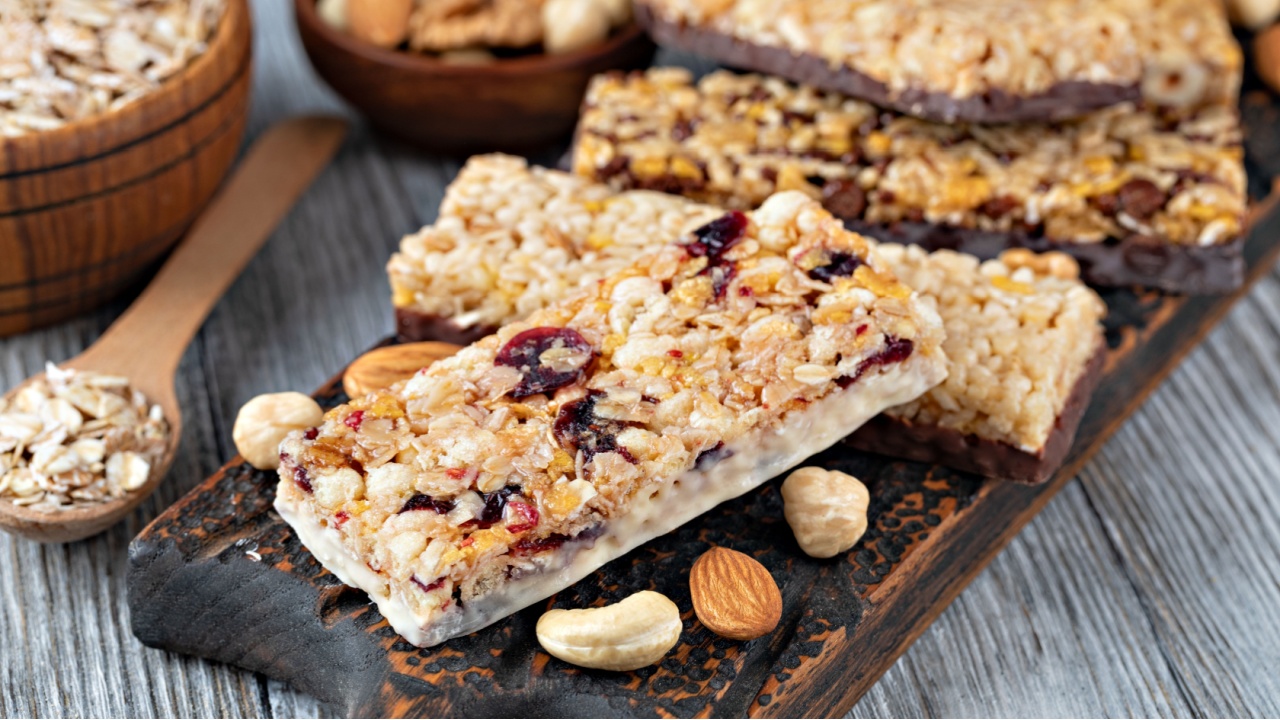Snacking can feel like a smart choice when the label says “healthy,” but not every option is as wholesome as it looks. Many popular bars, bites, and packaged treats pack in as much sugar as candy—even when they’re marketed with words like organic, natural, or protein-packed.
If you’re trying to make better choices, it helps to know which snacks are more sweet than smart. Here are 14 so-called “healthy” picks that are secretly sugar bombs.
1. Granola Bars

Want to Save This Recipe?
Enter your email & I'll send it to your inbox. Plus, get great new recipes from me every week!
By submitting this form, you consent to receive emails from Walking on Sunshine Recipes.
Granola bars are commonly perceived as a healthy snack option due to their packaging and marketing. They are portable, convenient, and often contain words like "natural" and "whole grain" on their labels. People buy them because they believe they are nutritional, easy to carry, and perfect for a quick energy boost.
However, many granola bars are loaded with added sugars. This is a concern now because surveys show an alarming increase in daily sugar intake among adults and children. Consuming these seemingly healthy snacks can contribute to this trend, leading to health issues like obesity and diabetes.
2. Fruit Yogurt

Fruit yogurt often appeals as a healthy snack due to its high protein and calcium content and the presence of probiotics. Many people turn to it as a healthier alternative to desserts or as part of a weight loss diet.
The problem lies in the sugar content, which is often overlooked. As people become more aware of sugar intake and its health implications, recognizing fruit yogurt's hidden sugar load is increasingly important.
3. Dried Fruit

Dried fruit is popular for its long shelf life and concentrated flavor. People buy it as a quick source of energy and because it's considered a healthier alternative to candy.
But the sugar content in dried fruit is notably high. With the growing emphasis on reducing sugar to prevent diseases like diabetes and heart disease, knowing the sugar load in dried fruit is crucial.
4. Bottled Smoothies

Bottled smoothies are often seen as a healthy on-the-go breakfast option. They're marketed as packed with vitamins and minerals, making them popular with busy consumers.
Despite their reputation, many bottled smoothies are high in sugar. With increasing awareness of sugar’s harmful effects, understanding what’s really inside these drinks is essential for better health choices.
5. Flavored Oatmeal

Flavored oatmeal is often perceived as a wholesome, fiber-rich breakfast. Many purchase it for its convenience, taste, and perceived nutritional benefits.
However, flavored oatmeal can be packed with added sugars. With the growing trend of cutting back on sugar for better long-term health, it’s important to be mindful of hidden sugar sources like instant oatmeal packets.
6. Cereal Bars

Cereal bars are often seen as a healthy, convenient snack. They're portable, tasty, and marketed as a good source of fiber and whole grains.
Despite the healthy image, many cereal bars are loaded with sugar. With rising concern over the role of added sugar in chronic health problems, recognizing sugar in cereal bars is more important than ever.
7. Sports Drinks

Sports drinks are favored for their electrolytes and are marketed as essential for rehydration after activity. Many people drink them regularly, believing they’re replenishing their bodies.
However, many are high in sugar. With today’s focus on overall wellness, understanding that sports drinks often function more like sodas than health drinks is vital.
8. Protein Bars

Protein bars are marketed as convenient meal replacements or post-workout fuel. They’re popular for being portable and high in protein content.
Yet, many protein bars also contain a surprising amount of sugar. For those trying to maintain a clean, balanced diet, being aware of sugar levels in these bars is crucial.
9. Bottled Tea

Bottled teas are often chosen as a healthier alternative to sodas, promoted for their antioxidants and refreshing taste.
But many bottled teas hide a significant amount of sugar. With sugar’s link to weight gain and chronic disease, choosing unsweetened or lightly sweetened options can make a big difference.
10. Breakfast Cereal

Breakfast cereals are favored for their convenience and variety. They're often marketed as quick, nutritious starts to the day, especially those labeled “whole grain” or “fortified.”
Despite the wholesome image, many cereals are very high in sugar. With families paying closer attention to daily sugar intake, understanding labels and choosing lower-sugar options has become essential.


Comments
No Comments